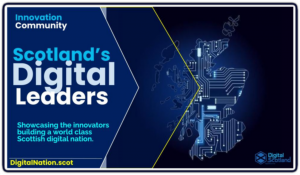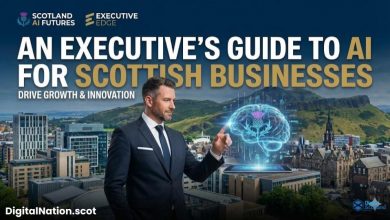Bill Buchanan: A Vision for Digital Trust, AI and the Future
Professor Buchanan emphasized collaboration to build secure, privacy-focused systems at the intersection of AI, digital trust, and cybersecurity, urging a shift from legacy processes to innovative, "digital-by-default" infrastructures.
 Professor Bill Buchanan OBE, a leading expert in cryptography and cybersecurity at Edinburgh Napier University, delivered the introductory address at the International Conference on Digital Trust, AI and the Future.
Professor Bill Buchanan OBE, a leading expert in cryptography and cybersecurity at Edinburgh Napier University, delivered the introductory address at the International Conference on Digital Trust, AI and the Future.
The talk welcomed over 500 participants and set the stage for the event, which integrated with the Trust4Futures Deep Tech Talent Initiative (DTTI).
Buchanan emphasized collaboration to build secure, privacy-focused systems at the intersection of AI, digital trust, and cybersecurity, urging a shift from legacy processes to innovative, “digital-by-default” infrastructures.
Key Themes and Ideas:
Interconnectedness of AI, Digital Trust, and Cybersecurity
Buchanan used a Venn diagram analogy to illustrate that these fields must converge, not operate in silos. He warned against treating AI in isolation, stating, “They are not different things… We need to as much as possible integrate the elements of AI, digital trust and cyber security.”
He highlighted cryptography as the “concrete foundation” for trust, contrasting it with building on “sand” without robust security.
Building Future-Proof Digital Systems
Bill critiqued paper-based legacies in voting, payments, and identity, advocating for properly designed digital alternatives like tokenization, digital assets, and central bank digital currencies (CBDCs). A core question: “Can we build systems for digital payments, digital assets and tokenization and do it properly and not just migrate from something that we have just now?”
He called for breaking down silos, enhancing data sharing (especially in government), and using decentralized tech to support societal goals like borderless economies.
AI’s Dual Potential
Buchanan praised AI’s transformative power but cautioned about risks, noting, “AI could destroy our society. It could destroy our kids’ education in an instance. It could destroy our national infrastructure in a minute.” The conference would explore defensive strategies, including post-quantum cryptography and homomorphic encryption, alongside beneficial applications.
Quantum Computing and Beyond
With Moore’s Law faltering, he stressed quantum’s role in future progress, promising hands-on demos. He also addressed skills development, as AI obsoletes superficial knowledge: “Like it or not, AI is really doing away with that low-level knowledge. And if you’re basing your work on trivial foundation knowledge then really AI can come along and replace that.” Education must prioritize deep expertise.



